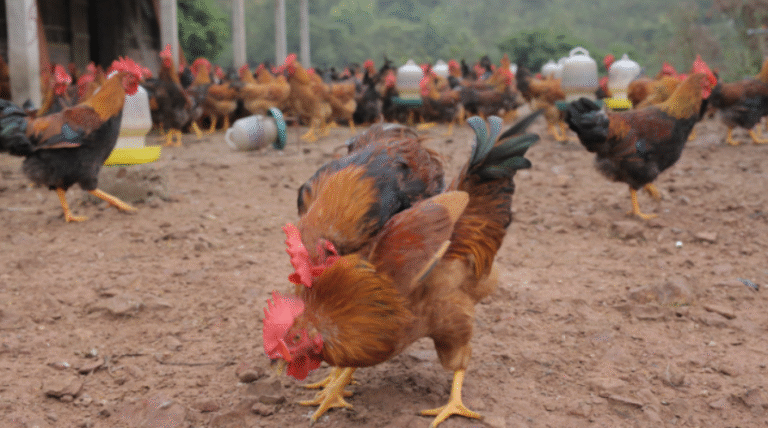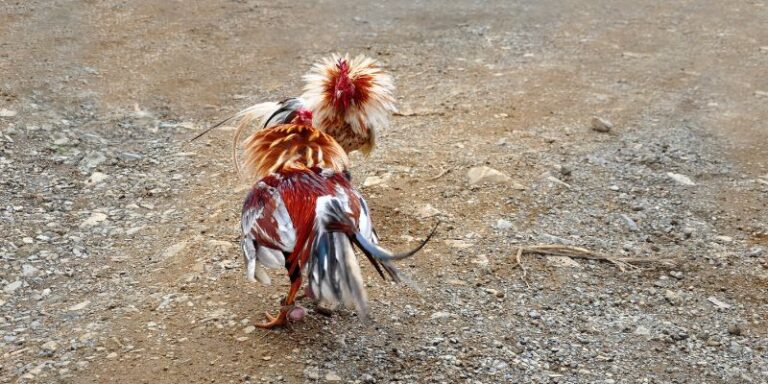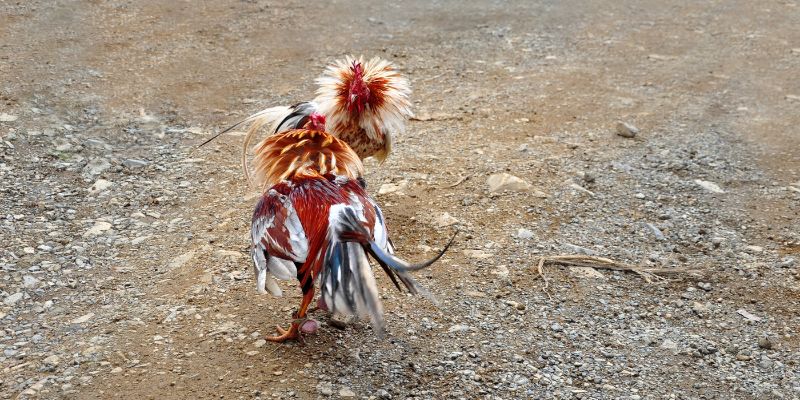
Regular Cockfighting - Interesting Discovery of Cockfighting
Monitor and identify common diseases of fighting cocks, helping to protect the health of fighting cocks and maintain good performance in matches.
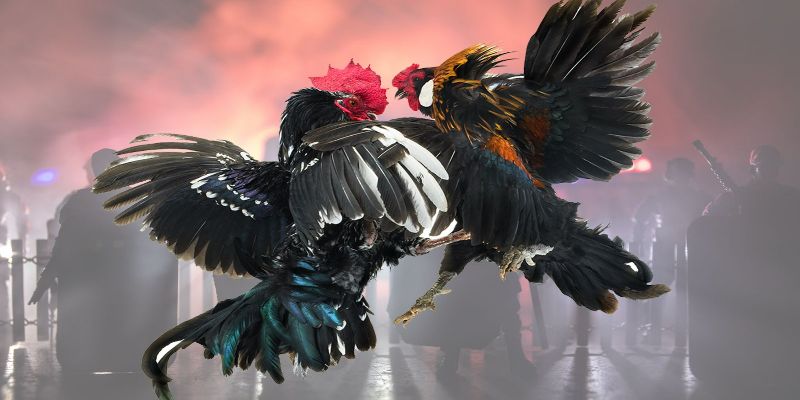
Fighting cock disease is one of the serious problems that fighting cock breeders often face. It not only https://58win93.com/ affects the health of the chickens but also causes damage to the breeders by reducing the fighting ability and material value of the best chickens.
Understanding Gamecock Disease
Gamefowl diseases can be classified into different types, depending on the cause, symptoms, and treatment. To better understand this disease, let’s first learn about the most common type of disease that gamefowl can encounter.
Causes of Disease in Fighting Cocks
The causes of chicken diseases are very diverse, from bacteria, viruses to parasites.
Sudden changes in weather, inadequate diet or polluted living conditions can also reduce the resistance of chickens. When their health is weakened, chickens become susceptible to infectious diseases or develop various pathologies.
- Viruses: There are many viruses that can cause illness in fighting cocks, such as the virus that causes fowl cholera or avian influenza. Common symptoms include high fever, fatigue, and decreased appetite.
- Bacteria: Many types of bacteria can enter the chicken’s body, leading to digestive, respiratory problems or blood infections.
- Parasites: Parasites are also a major cause of illness in chickens, especially worms and mites. They can cause malnutrition and reduce overall health.
To limit the risk of disease, chicken farmers need to take care of the living environment and nutrition of chickens properly.
Symptoms of Fighting Cock Disease
When fighting cocks are sick, the following symptoms can be observed:
- Behavioral changes: Chickens become lethargic and are no longer as active as before.
- Decreased appetite: Eating and drinking is significantly reduced, chickens may stop eating completely if the disease is severe.
- Appearance of external symptoms: Some diseases will cause chickens to have easily recognizable external signs such as watery eyes, difficulty breathing or bad breath.
- Other symptoms: Cough, diarrhea or any symptoms related to the digestive system can also be a sign of the disease.
These symptoms need to be monitored regularly for timely detection to help improve the health of chickens.
Methods of Diagnosing Diseases in Fighting Cocks
Accurate diagnosis of fighting cock disease requires expertise and experience.
- Observation: Farmers should take notes of the symptoms their chickens are experiencing, including behavior, appetite, and skin and feather pigmentation.
- Testing: Sometimes it is necessary to perform an autopsy by sending stool, blood, or soft tissue samples to laboratories to determine the cause of the illness.
- Consult a Veterinarian: If you are unsure about your chicken’s health, consulting a professional is always a wise choice.
Correct diagnosis not only helps in effective treatment but also minimizes the risk to other chickens in the flock.
Treatment Methods for Fighting Cock Disease
Once the disease has been identified, the next step is to choose the most appropriate treatment.
Natural Treatments
Using natural therapies is increasingly popular in the treatment of cockfighting diseases.
- Proper nutrition: Providing a diet rich in vitamins and minerals not only helps strengthen resistance but also supports quick recovery.
- Using herbs: Many herbs such as perilla, ginger, and turmeric can benefit chicken health. They have anti-inflammatory, blood-enriching, and digestive benefits.
- Extend Rest Period: Chickens need adequate rest to recover their health. Limit strenuous exercise and training during this difficult period.
- Ensure hygiene: A clean living environment will help keep away disease-causing bacteria and viruses.
These methods need to be maintained regularly to bring the best results.
Use of Western Medicine
In severe cases, Western medicine should be used to treat specific diseases.
- Antibiotics: For bacterial infections, antibiotics may be prescribed to help your chicken fight off harmful bacteria. However, they should only be used under the guidance of a veterinarian.
- Vaccines: Vaccination is an effective way to prevent certain diseases. Vaccination helps to increase the resistance of fighting cocks, protecting them from dangerous diseases.
- Supplements: When chickens are sick, supplementing vitamins and minerals through medicines can also help them recover faster.
Note that self-medication can lead to many serious risks.
Preventing Diseases in Fighting Cocks
Prevention is always better than cure. Therefore, taking preventive measures is extremely necessary.
- Ensure barn hygiene: Disinfect barns periodically to avoid environmental pollution.
- Varied diet: Provide a variety of foods that are rich and complete in nutrients to optimize nutrition.
- Regular monitoring: Check the product daily for early detection of possible symptoms.
- Regular vaccination: Schedule vaccinations for your flock and provide reminders to ensure effective protection.
These preventive steps are simple but have a great impact on the health and development of fighting cocks.
How to Observe the Health of Fighting Cocks
Observing the health of fighting cocks requires care and patience.
Signs of Good Health
To detect disease, you should first know the signs of good health in chickens.
- Active: Healthy chickens are usually very active, love to move and forage.
- Shiny skin and feathers: A healthy chicken will have smooth feathers and even skin pigmentation.
- Stable eating ability: Chickens eat well, with no signs of anorexia, loss of appetite or vomiting.
- Weight Report: Tracking your chickens’ growth and weight weekly will help you assess nutrition and health.
Once you understand the signs of good health in chickens, it will be easier for you to recognize when problems arise.
How to Monitor Chicken Behavior
Monitoring chicken behavior is one of the important ways to monitor their health.
- Record daily activities: You should clearly record every action of the chicken, including eating, sleeping or playing.
- Pay attention to treatment and care: Learning from previous cases of illness in chickens will help you identify the disease early.
- Honest reporting system: Establish convenient area tracking procedures for quick control.
The habit of monitoring seems boring but plays an essential role in protecting the health of fighting cocks.
Remember All Changes
Keeping track of all changes is a great way to keep your chickens in good condition.
- Keep a log: Keeping a log of changes in your chickens’ behavior, diet, or lifespan will help you keep track.
- Health and Climate Change Update: Every climate change can impact chickens and their mental health.
By paying close attention to everything, you can spot any unsettling trends in your chickens’ health early.
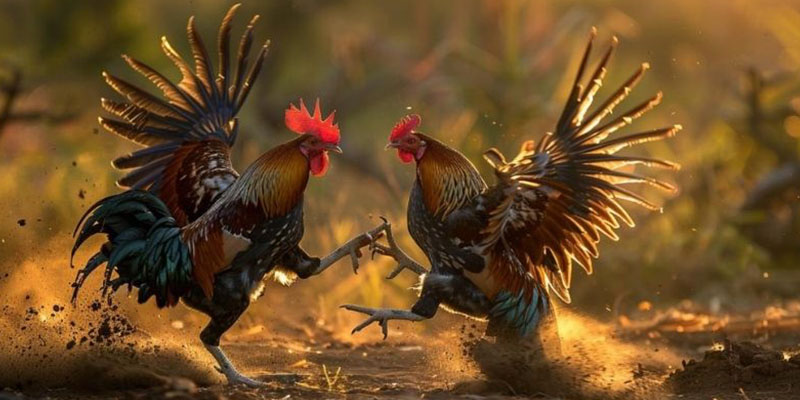
Frequently Asked Questions About Gamecock Disease
Is cockfighting disease dangerous?
Fowl diseases can pose a serious threat to the health of chickens and affect their fighting ability and productivity. If not treated promptly, the disease can spread rapidly and cause great losses.
How to detect cockfighting disease early?
To detect diseases in fighting cocks early, breeders need to regularly monitor the behavior, diet and health status of their chickens. Keeping a notebook will be helpful to record possible symptoms.
Do fighting cocks need vaccination?
Yes, vaccination for fighting cocks is essential to prevent some extremely dangerous diseases. Regular vaccination not only helps protect the health of the chickens but also ensures the sustainable development of the farming model.
What foods are good for fighting cocks’ health?
Healthy food for fighting cocks should be nutritious, including grains, high protein foods such as beans, fresh vegetables and fruits, and supplements if necessary.
Is there any way to treat cockfighting disease at home?
There are also some natural treatments that can be used at home such as proper nutrition, herbal remedies or a clean living environment. However, in severe cases, veterinary assistance is always needed.
Conclude
Fighting cock disease is a worrying reality for those who raise fighting cocks. Therefore, understanding each type of disease, symptoms, treatment and prevention are the prerequisites to protect the health of the chickens. Do not underestimate the importance of caring for and monitoring their health. Hopefully this article has provided useful information, helping you better understand fighting cock diseases, thereby improving your ability to care for and prevent diseases for your fighting cocks.
